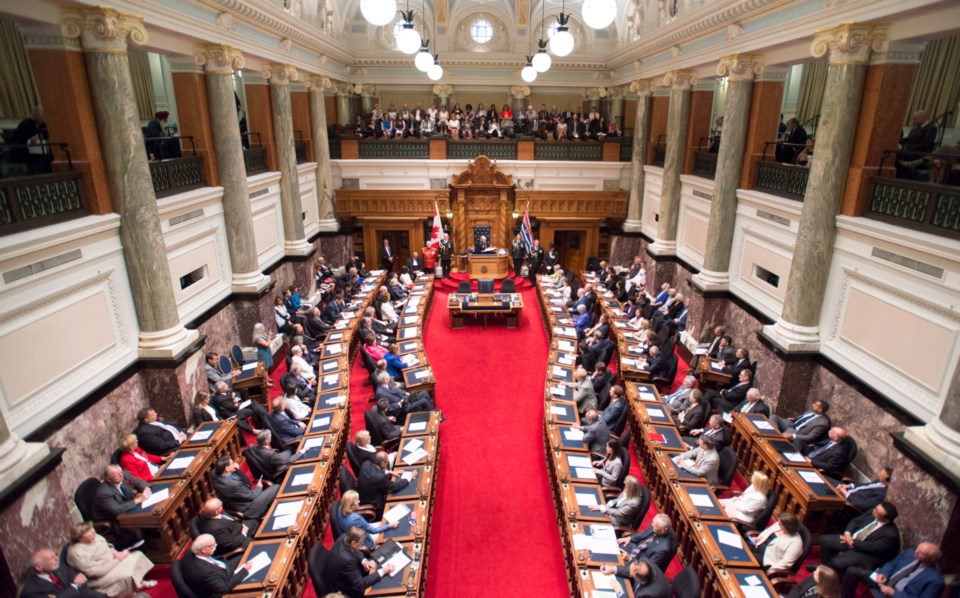The duties of B.C.’s lieutenant-governor are largely ceremonial. That doesn’t mean she isn’t useful — she’s the needed and welcome non-partisan face of government; she represents all the people, not just those of a certain political stripe. But a lieutenant-governor usually acts on the advice of the premier and is rarely involved in the nuts and bolts of running government.
One of those rare exceptions occurred Thursday. Lt-Gov. Judith Guichon, rather than dissolving the legislature as requested by Premier Christy Clark, properly exercised her constitutional authority and asked NDP Leader John Horgan to form a government. In doing so, she has earned herself a spot in history — no other lieutenant-governor has been faced with a situation quite like this one.
Guichon was acting on behalf of the people of B.C., who have shown little appetite for a summer political campaign — an Angus Reid survey found more than 70 per cent of respondents opposed to a snap election. And an Insights West online survey indicated 55 per cent of British Columbians want to give the NDP-Green coalition a chance to govern.
Until the bitter end, Clark maintained Horgan would not be able to form a stable government, an odd stance given how shaky her position was. But with the Green alliance, he has the highest numbers, so he should have a chance to prove he can govern.
It’s yet to be seen if his government can be more stable than the B.C. Liberals. Horgan needs to act quickly and decisively. He should not delay in announcing his cabinet — he’s had nearly two months to prepare for this moment.
The change in government might just delay an inevitable election by a few months. It could be that nothing gets done in the legislature, which would hurt the province overall, and could be more costly than a snap election.
On the other hand, if Horgan can hold his coalition together until Christmas, he has a pretty good chance for the longer term.
What about Clark’s fate? She and her party have delivered good government generally, but they have been deaf to some crucial issues. Their shine has been replaced by a patina of arrogance and dulled by a tendency to favour moneyed interests.
Clark should stay on as party leader. The Liberals cannot afford a leadership battle when the next election could come at any time. The province cannot afford to be without a strong opposition, and she would be a capable opposition leader. Her final speech in the legislature was impressive and hit all the right notes. Unfortunately, it came too late.
It’s not inconceivable to think one or two Liberals might give serious thought to crossing the floor — the throne speech did, after all, borrow a raft of major NDP policies. If that happens, or other serious fractures emerge within the party, then Clark will have to go quickly so the party has time to rebuild.
Horgan is in a better position to govern than Clark was, but just barely. One MLA’s vote could bring his government down. He would do well to remember that he did not win by a landslide, and that Clark was not overwhelmingly rejected. Sixty per cent of voters did not want the Liberals, but 60 per cent did not want the NDP, either.
If all parties are determined to act for the good of province, they will be sincere about working together on the common issues that have been identified in campaigns and in the throne speech. But if they merely make a show of co-operation, all the while campaigning for themselves, expect an entertaining — but sadly, dysfunctional — legislature.



